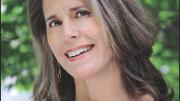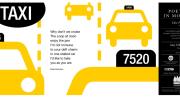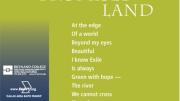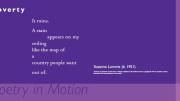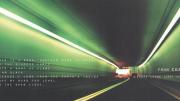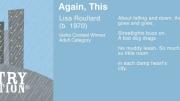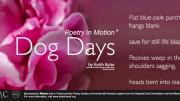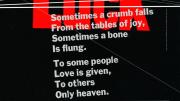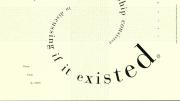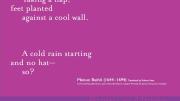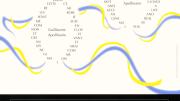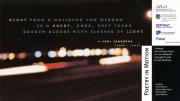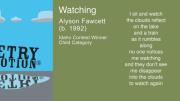Poet Elise Paschen ’81 certainly grew up in an artistic home. Her mother, Maria Tallchief, was the first American prima ballerina: from 1947 to 1960 the beautiful daughter of an Osage Indian father and a Scots-Irish mother was the star of the New York City Ballet. Tallchief and principal choreographer George Balanchine were married from 1946 to 1952, but Paschen is the only child of Tallchief and her second husband, Chicago contractor Henry “Buzz” Paschen. As a girl, Paschen did try ballet, briefly, but “knew at a young age that I wanted to be a writer,” she says. She recalls reciting Blake’s “The Tiger” for her mother at the age of eight. “I lived in my imagination,” she says, “and loved writing poems, short stories, plays.”
As author of the collections Infidelities (1996) and Bestiary (2009), Paschen has evoked poignant moments, feelings, and ideas in lines crafted with lapidary care, working in traditional meters and forms and often using rhyme. Among poets she admires is Richard Wilbur, A.M. ’47, JF ’50 (see “Poetic Patriarch,” November-December 2008, page 36); he returns the regard, writing that Paschen’s poems “draw upon a dream life which can deeply tincture the waking world.” He observed of “Oklahoma Home”—a quiet, haunting verse that draws on the poet’s Osage ancestry—that it “magically and movingly enters the consciousness of another person in another time and place.”
Paschen also helped bring the poetic art to millions of listeners and readers through her work as executive director of the New York-based Poetry Society of America (PSA) from 1988 until 2001. In 1991 she secured an international grant from the National Endowment for the Arts to send two poets, both Native American women, to England on a reading tour, and went with them. While traveling by Tube in London, Paschen looked up to see a seventeenth-century sonnet by Michael Drayton—“Since there’s no help, come let us kiss and part”—displayed in the car, and imagined something similar in New York City subways and buses. She dismissed the idea as unrealistic, but several months after her return to New York, got a call from New York City Transit: its president had been traveling in London, seen the Poems on the Underground displays, and wondered if the PSA might help start an analogous initiative. Poetry in Motion, launched in New York in 1992, went national in 1996, spreading to more than 20 cities. By 2001, Paschen says, “We were reaching more than 13 million people a day with poetry in subways and buses across the country.”
When she ran the PSA, Paschen’s ambition was “to put poetry at the crossroads of American life, to make poetry visible, to make poetry accessible.” Since then, she has edited a series of print anthologies: Poetry Speaks, Poetry Speaks to Children, and the most recent, Poetry Speaks Who I Am; all three include CDs of poets reading their works, as well. The first two made the New York Times bestseller list, “which is unheard-of for poetry,” she says, and each sold more than 100,000 copies. Since 1999, she has continued her poetry-fostering mission by teaching in the Writing Program at the School of the Art Institute of Chicago.
Paschen was fortunate in her mentors. At Harvard she studied with Seamus Heaney and Robert Fitzgerald, and was poetry editor of the Harvard Advocate. “You should go to Houghton [Library] and look up Yeats’s manuscripts,” Heaney told Paschen at one point. She did. “I discovered how extensively Yeats revised his work,” she recalls. “At the time, as a sophomore, I would write a poem and I thought I was finished with it—that was it! Seamus very gently nudged me to realize that I had to work on my poem and craft it. That moment influenced the rest of my life as a writer—I revise copiously. But it also awakened in me a passion for William Butler Yeats. I went to Oxford after Harvard and did an M.Phil. degree in twentieth-century literature and wrote my D.Phil. dissertation on Yeats’s revisions.” With Fitzgerald, she studied versification, which she compares to a pianist practicing scales. “Everything I write is in some form, or meter, or rhythm, like iambic tetrameter,” she says. “I’m now experimenting with prose poems, but it is challenging; I enjoy writing in a set form because it allows me to work in a confined space—knowing where I have to break my line.”
Those lines tend to be few in number. Paschen’s poems are sharp arrows piercing some target in her personal landscape. Infidelities explores both the pleasures and hazards of eros, while the poems in Bestiary take animal life as both their ruling metaphor and, quite often, subject. In traditional forms like the sonnet, villanelle, and even the ancient Eastern ghazal, she plumbs primal themes: birth, death, sex, parenthood, aging. At times the poet’s Osage heritage shines through the words, and one finds in her language the kind of hard-won grace her mother achieved in dance.
